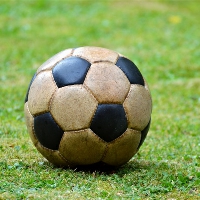The professional code of traditional Chinese medicine is: 100501K
Courses of Traditional Chinese Medicine
Ancient Chinese Medicine, English, Basic Theories of Traditional Chinese Medicine, Diagnostics of Traditional Chinese Medicine, Traditional Chinese Medicine, Prescriptions, Selected Readings of Internal Medicine, Selected Readings of Treaties on Febrile Diseases, Selected Readings of Golden Chamber, Febrile Diseases, Internal Medicine of Traditional Chinese Medicine, Surgery of Traditional Chinese Medicine, Gynecology of Traditional Chinese Medicine, Pediatrics of Traditional Chinese Medicine, Acupuncture and Moxibustion, Human Anatomy, Histology and Embryology, Physiology, Biochemistry, Pathology, Pharmacology, Physical Diagnosis Laboratory diagnostics, imaging diagnostics, western medicine internal medicine, western medicine surgery, etc
Professional use of traditional Chinese medicine
Traditional Chinese medicine mainly studies the basic knowledge and skills of human physiology and pathology, disease diagnosis and prevention, health care and rehabilitation, etc. It carries out disease diagnosis and treatment from the perspective of traditional Chinese medicine, and regulates the internal organs of the human body. For example, pulse taking diagnosis, external application of drugs to remove blood stasis, acupuncture, cupping, moxibustion and other non drug therapies, formulation of traditional Chinese medicine prescriptions, research and development of traditional Chinese medicine preparations such as Banlangen granules, etc. Key words: Chinese medicine, observation, hearing, inquiry, contact, Chinese medicine, acupuncture and moxibustion
Traditional Chinese Medicine Learning Course
Some colleges and universities in Pathological Anatomy, Prescriptions, Febrile Diseases, Yellow Emperor's Internal Classic, Ancient Chinese Medicine, Pediatrics of Traditional Chinese Medicine, Traditional Chinese Medicine Processing, Treatise on Febrile Diseases, Synopsis of the Golden Chamber, and Massage Therapy are trained in the following professional directions: bone injury, health preservation, English, rehabilitation medicine, general practitioners, acupuncture and massage, clinical Chinese medicine Beauty and rehabilitation, combination of traditional Chinese and western medicine.
Professional Interpretation of Traditional Chinese Medicine
Training objectives: This major aims to train applied talents of traditional Chinese medicine who have good humanistic, scientific and professional qualities, systematic basic theories, basic knowledge, basic skills of traditional Chinese medicine, and the ability to carry out clinical diagnosis and treatment of common diseases in traditional Chinese medicine, and can be engaged in medical treatment, prevention, health care, rehabilitation and other work in the medical and health field.
Training requirements: The students of this major mainly study the basic theories and knowledge of traditional Chinese medicine and the necessary basic medical and clinical knowledge, receive basic training in humanities, science, professional quality education and clinical skills, and master the basic ability to use traditional Chinese medicine for diagnosis, treatment, prevention, rehabilitation and crowd health services.
Graduates should acquire the following knowledge and abilities:
1. Master the basic knowledge and scientific methods of humanities and social sciences and natural sciences related to traditional Chinese medicine;
2. Master the basic theory, basic knowledge, basic skills, thinking methods of traditional Chinese medicine, as well as necessary basic medicine, clinical medicine knowledge and basic skills of traditional Chinese medicine;
3. Be familiar with national guidelines, policies and regulations related to health care;
4. Be familiar with psychology, medical ethics and humanistic care;
5. Be familiar with the idea of general practice medicine and the work tasks and methods of general practitioners of traditional Chinese medicine, as well as the necessary knowledge of preventive medicine and the principles of prevention and treatment of common infectious diseases;
6. Understand the development history and main academic viewpoints of TCM academic thought;
7. Understand the development trend of TCM discipline and industry demand;
8. Have correct values, good professional ethics and teamwork ability;
9. Have the basic ability to treat common diseases based on syndrome differentiation, as well as the ability to judge and preliminarily treat common critical and severe diseases;
10. Have the ability to effectively communicate with patients and their families and carry out health education for patients and the public;
11. Have the ability to read the classical medical books of Chinese medicine and medical related literature, and use modern technology to obtain information;
12. Have the ability of preliminary scientific research and practical work of traditional Chinese medicine, and have certain critical thinking ability and innovative spirit;
13. Have the awareness of self-improvement, continuous pursuit of excellence, and the ability of independent learning and lifelong learning;
14. Have the awareness and ability to practice medicine according to law and protect patients and their legitimate rights and interests in practice activities.
Main subject: TCM.
Core courses: basic theory of traditional Chinese medicine, diagnostics of traditional Chinese medicine, traditional Chinese medicine, prescriptions, classics of traditional Chinese medicine, acupuncture, internal medicine of traditional Chinese medicine, surgery of traditional Chinese medicine, gynecology of traditional Chinese medicine, pediatrics of traditional Chinese medicine.
Main practical teaching links: course experiment, clinical skill training, clinical probation, graduation practice, scientific innovation activities, social practice, etc.
Major professional experiments (training): normal human anatomy experiment, physiology experiment, pathology experiment, pharmacology experiment, physical examination training, four diagnostic skills training of traditional Chinese medicine, clinical skills training of traditional Chinese medicine internal medicine, clinical skills training of traditional Chinese medicine surgery, acupuncture skills training, clinical skills training of emergency, doctor-patient communication skills training, etc.
Years of study: five years.
Degree awarded: Bachelor of Medicine.
[This specialty is the specialty of national control distribution]
Employment Direction of Traditional Chinese Medicine
Medical institutions: TCM doctors, health care, acupuncture and massage; Pharmaceutical enterprises: Chinese medicine research and development, Chinese medicine preparations.

